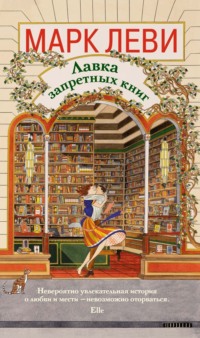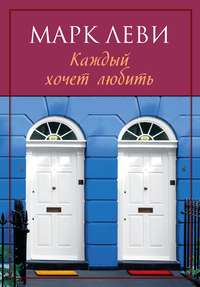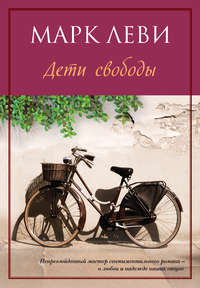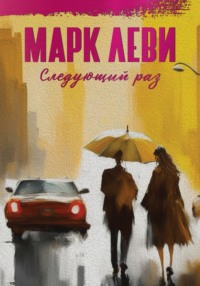
Полная версия
The Children of Freedom
‘He died the day before yesterday, two streets from here. And if the answer to my question, “Do you want to come into direct contact with the war?” is still yes, then let’s say he’s the one you’re replacing. This evening, someone will knock at your door. He will tell you he’s come on behalf of Jacques.’
With an accent like that, I knew very well that this wasn’t his real first name, but I knew too that when you entered the Resistance, your former life no longer existed, and your name disappeared with it. Jacques slipped an envelope into my hand.
‘As long as you keep paying the rent, old Mme Dublanc won’t ask any questions. Go and get yourselves photographed; there’s a kiosk at the railway station. Now clear off. We’ll have the opportunity to meet up again.’
Jacques continued on his way. At the corner of the alleyway, his lanky silhouette vanished into the mist.
‘Shall we get going?’ asked Claude.
I took my little brother to a café and we had just what we needed to warm ourselves up. Sitting at a table by the window, I watched the tramcar moving up the high street.
‘Are you sure?’ Claude asked, raising the steaming cup to his lips.
‘What about you?’
‘Me? I’m sure I’m going to die, but apart from that I don’t know.’
‘If we join the Resistance, it’s to live, not to die. Do you understand?’
‘Wherever did you dredge that up from?’
‘Jacques said it to me just now.’
‘So if Jacques says it…’
And then a long silence ensued. Two militiamen entered the café and sat down, paying us no attention. I was afraid that Claude might do something foolish, but all he did was shrug his shoulders. His stomach rumbled.
‘I’m hungry,’ he said. ‘I’m fed up with being hungry.’
I was ashamed of having a seventeen-year-old lad in front of me who didn’t have enough to eat, ashamed of my powerlessness; but that evening we might finally join the Resistance and then, I was certain, things would eventually change. Spring will return, Jacques would say one day, so, one day, I will take my little brother to a baker’s shop and buy him all the cakes in the world, which he will devour until he can eat no more, and that spring will be the most beautiful of my life.
We left the little café and, after a short stop in the railway station concourse, we went to the address Jacques had given us.
Old Mme Dublanc didn’t ask us any questions. She just said that Jérôme mustn’t care much about his things to leave like that. I handed her the money and she gave me the key to a ground-floor room that looked out onto the street.
‘It’s only for one person!’ she added.
I explained that Claude was my little brother, and that he was visiting me here for a few days. I think Mme Dublanc had a slight suspicion that we weren’t students, but as long as she was paid her rent, the lives of her tenants were nothing to do with her. The room wasn’t much to look at, with some old bedding, a water jug and a basin. Calls of nature were answered in a privy at the bottom of the garden.
We waited for the rest of the afternoon. At nightfall, someone knocked at the door. Not in the way that makes you jump; not the confident rap of the Militia when they’re coming to arrest you, just two little knocks. Claude opened the door. Emile entered, and I sensed immediately that we were going to be bound by friendship.
Emile isn’t very tall and he hates it when people say he’s short. It’s a year since he embarked on a clandestine life and everything about his attitude shows he’s become accustomed to it. Emile is calm and wears a funny kind of smile, as if nothing were important any more.
At the age of ten, he fled from Poland because his family were being persecuted. Aged barely fifteen, watching Hitler’s armies parading through Paris, Emile realised that the people who had previously wanted to take away his life in his own country had now come here to finish their dirty work. He stared with his child’s eyes and could never completely close them again. Perhaps that’s what gives him that odd smile; no, Emile’s not short, he’s stocky.
It was Emile’s concierge who saved him. It has to be said that in this sad France, there were some great landladies, the sort who looked at us differently, who wouldn’t accept the killing of decent people, just because their religion was different. Women who hadn’t forgotten that, immigrant or otherwise, a child is sacred.
Emile’s father had received the letter from police headquarters telling him he must go and buy yellow stars to sew onto coats, at chest level and clearly visible, the instructions said. At that time, Emile and his family were living in Paris, on rue Sainte-Marthe, in the tenth arrondissement. Emile’s father went to the police station on avenue Vellefaux; there were four children, so he was given four stars, plus one for him and another for his wife. Emile’s father paid for the stars and went back home, hanging his head, like an animal who’d been branded with a red-hot iron. Emile wore his star, and then the police raids started. It was no good rebelling, telling his father to tear off that piece of filth, nothing was any use. Emile’s father was a man who lived according to the law, and besides, he trusted this country, which had welcomed him in; here, you couldn’t do bad things to decent folk.
Emile had found lodgings in a little maid’s room in the attics. One day, as he was coming downstairs, his concierge had rushed up behind him.
‘Quick, go back up, they’re arresting all the Jews in the streets, the police are everywhere. They’ve gone mad. Quickly Emile, go up and hide.’
She told him to close his door and not answer to anyone; she would bring him something to eat. A few days later, Emile went out without his star. He returned to rue Sainte-Marthe, but there was no one now in his parents’ apartment; neither his father, nor his mother, nor his two little sisters, one aged six and the other fifteen, not even his brother, whom he’d begged to stay with him, not to go back to the apartment on rue Sainte-Marthe.
Emile had nobody left; all his friends had been arrested; two of them, who had taken part in a demo at porte Saint-Martin, had managed to escape via rue de Lancry when some German soldiers on motorcycles had machine-gunned the procession; but they had been caught. They ended up being stood up against a wall and shot. As a reprisal, a resistor known by the name of Fabien had killed an enemy officer the following day, on the metro platform at Barbès station, but that hadn’t succeeded in bringing back Emile’s two friends.
No, Emile had nobody left, apart from André, one final friend with whom he had taken a few accountancy lessons. So he went to see him, to try and get a little help. It was André’s mother who opened the door to him. And when Emile told her that his family had been taken away, that he was all alone, she took her son’s birth certificate and gave it to Emile, advising him to leave Paris as quickly as possible. ‘Do whatever you can with it; you might even get yourself an identity card.’ The name of André’s family was Berté, and they weren’t Jewish, so the certificate was a golden safe-conduct pass.
At the Gare d’Austerlitz, Emile waited as the train for Toulouse was assembled at the platform. He had an uncle down there. Then he got into a carriage, hid under a seat and didn’t move. In the compartment, the passengers had no idea that behind their feet a kid was hiding; a kid who was in fear for his life.
The train set off, but Emile stayed hidden, motionless, for hours. When the train crossed into the free zone, Emile left his hiding place. The passengers’ expressions were a sight to see when this kid emerged from nowhere; he admitted that he had no papers; a man told him to go back into his hiding place immediately, as he was accustomed to this journey and the gendarmes would soon be carrying out another check. He would let him know when he could come out.
You see, in this sad France, there were not only some great concierges and landladies, but also generous mothers, splendid travellers, anonymous people who resisted in their own way, anonymous people who refused to do as their neighbours did, anonymous people who broke the rules because they were shameful.
Into this room, which Mme Dublanc has been renting to me for a few hours, comes Emile, with his whole story, his whole past. And even if I don’t know Emile’s story yet, I can tell from the look in his eyes that we’re going to get on well.
‘So, you’re the new one are you?’ he asks.
‘We both are,’ cuts in my little brother, who hates it when people act as if he isn’t there.
‘Have you got the photos?’ asks Emile.
And he takes from his pocket two identity cards, some ration books and a rubber stamp. Once the papers have been sorted out, he stands up, turns the chair around and sits down again, astride it.
‘Let’s talk about your first mission, Jeannot. Well, as there are two of you, let’s call it the first mission for both of you.’
My brother’s eyes are sparkling. I don’t know if it’s hunger that’s gnawing away at his stomach or the new appetite for a promise of action, but I can see clearly that his eyes are sparkling.
‘You’re going to have to steal some bicycles,’ says Emile.
Claude goes back to the bed, looking downcast.
‘Is that what resisting means? Pinching bicycles? I’ve come all this way for someone to ask me to be a thief?’
‘So, do you think you’re going to carry out your missions in a car? The bicycle is the partisan’s best friend. Think for a moment, if that’s not too much to ask of you. Nobody takes any notice of a man on a bike; you’re just some guy who’s coming back from the factory or leaving for work, depending on the time. A cyclist melts into the crowd, he’s mobile, he can sneak around everywhere. You do your job, you clear off on your bike, and while people are still wondering what exactly happened, you’re already on the other side of town. So if you want to be entrusted with important missions, start by going and pinching your bicycles!’
So, that was the lesson for the day. We still had to work out where we were going to pinch the bikes from. Emile must have anticipated my question. He had already done some research and told us about the corridor of an apartment building where three bicycles slept, never chained up. We’d have to act fast; if all went well, we were to come and find him early in the evening at the house of a friend. He asked me to learn the friend’s address by heart. It was a few kilometres away, in the outskirts of Toulouse; a small, disused railway station in the Loubers district. ‘Hurry,’ Emile had insisted, ‘you must be there before the curfew.’ It was spring, darkness would not fall for several hours, and the apartment building with the bikes wasn’t far from here. Emile left and my little brother continued to sulk.
I managed to convince Claude that Emile wasn’t wrong and also that it was probably a test. My little brother moaned, but agreed to follow me.
We made a remarkable success of our first mission. Claude was hiding in the street; after all, you could get two years in prison for stealing a bicycle. The corridor was deserted and, as Emile had promised, there were indeed three bikes there, resting against each other, and none of them chained up.
Emile told me to nab the first two, but the third one, the one against the wall, was a sports model with a flaming red frame and handlebars with leather grips. I moved the one in front, which fell with a horrifying racket. Already I could see myself having to gag the concierge, but by a stroke of good luck the lodge was empty and nobody disturbed my work. The bike I fancied wasn’t easy to capture. When you’re afraid, your hands become clumsier. The pedals were caught up and whatever I did, I couldn’t separate the two bicycles. After a thousand attempts, all the while trying to calm my pounding heart as best I could, I finally succeeded. My little brother peeped in, finding that time dragged when you were hanging about on the pavement, all alone.
-Good grief, what on earth are you up to?
-Here, take your bike and stop moaning.
-Why can’t I have the red one?
-Because it’s too big for you!
Claude started moaning again, and I pointed out to him that we were on an official mission and that this was not the time for an argument. He shrugged his shoulders and mounted his bicycle. A quarter of an hour later, pedalling flat out, we were following the route of the disused railway line in the direction of the small former railway station at Loubers.
Emile opened the door to us.
‘Look at these bikes, Emile!’
Emile assumed a strange expression, as if he wasn’t pleased to see us, and then he let us in. Jan, a tall, thin guy, looked at us and smiled. Jacques was in the room too; he congratulated us both and, seeing the red bike I’d chosen, he burst out laughing again.
‘Charles will disguise them so they’re unrecognisable,’ he added, laughing even louder.
I still didn’t see what was funny about it and apparently neither did Emile, in view of the expression he was wearing.
A man in a vest came down the stairs. He was the one who lived here in this little disused station, and for the first time I met the brigade’s handyman. The one who took apart and reassembled the bikes, the one who made the bombs to blow up the locomotives, the one who explained how, on railway flat wagons, you could sabotage the cockpits assembled in the region’s factories, or how to cut the cables on the wings of bombers, so that once they were assembled in Germany, Hitler’s planes wouldn’t take off for quite a while. I must tell you about Charles, this friend who had lost all his front teeth in the Spanish Civil War, this friend who had passed through so many countries that he had mixed up the languages and invented his own dialect, to the point where nobody could really understand him. I must tell you about Charles because, without him, we would never have been able to accomplish all that we were going to do in the coming months.
That evening, in that ground-floor room in an old, disused railway station, we’re all aged between seventeen and twenty, we’re soon going to make war and despite his hearty laugh just now when he saw my red bike, Jacques looks worried. I’m soon going to find out why.
Someone knocks at the door, and this time Catherine comes in. She’s beautiful, is Catherine, and what’s more, from the look she exchanges with Jan, I’d swear they’re a couple, but that’s impossible. Rule number one: no love affairs when you’re living a secret life in the Resistance, Jan will explain while we’re sitting at the table, as he introduces us to the way we must behave. It’s too dangerous; if you’re arrested, there’s a risk that you’ll talk to save the one you love. ‘A condition of being a partisan is that you don’t get yourself attached,’ Jan said. And yet he feels an attachment to each one of us and I can work that out already. My little brother isn’t listening to anything, he’s devouring Charles’s omelette; at times, I tell myself that if I don’t stop him, he’ll end up eating the fork as well. I can see him eyeing up the frying pan. Charles sees him too, and smiles. He gets up and goes to serve him up another portion. It’s true that Charles’s omelette is delicious, even more so for our bellies, which have been empty for so long. Behind the station, Charles cultivates a kitchen garden. He has three hens and even some rabbits. He’s a gardener, is Charles, anyway that’s his cover and the people around here like him a lot, even if his accent makes it clear that French isn’t his native tongue. He gives them lettuces. And besides, his kitchen garden is a splash of colour in the dreary area, so the people around here like him, this improvised colourist, even if he does have a terrible foreign accent.
Jan speaks in a steady voice. He is hardly any older than I am but he already has the air of a mature man and his calm commands respect. What he tells us thrills us, there is a sort of aura around him. What Jan says is terrible: he talks to us about the missions carried out by Marcel Langer and the first members of the brigade. They’ve already been operating in the Toulouse area for a year, Marcel, Jan, Charles and José Linarez. Twelve months, in the course of which they’ve thrown grenades at a dinner party for Nazi officers, blown up a barge filled to bursting with petrol, burned down a garage for German lorries. So many operations that the list alone is too long to tell in a single evening; Jan’s words are terrible, and yet he exudes a sort of tenderness that everyone here misses, abandoned children that we are.
Jan’s stopped talking. Catherine is back from town with news of Marcel, the leader of the brigade. He’s incarcerated in Saint-Michel prison.
His downfall was so stupid. He went to Saint-Agne station to collect a suitcase conveyed by a young woman in the brigade. The suitcase contained explosives, sticks of dynamite, of ablonite EG antifreeze, twenty-four millimetres in diameter. These sixty gramme sticks were put aside by a few Spanish miners who were sympa-thisers, and who were employed in the factory at the Paulilles quarry.
It was José Linarez who had organised the mission to collect the suitcase. He had refused to let Marcel get on board the little train that shuttled between the Pyrenean towns; the girl and a male Spanish friend had made the return trip alone as far as Luchon and taken possession of the package; the handover was to take place at Saint-Agne. The halt at Saint-Agne was more of a level crossing than a railway station proper. There weren’t many people in this undeveloped corner of the countryside; Marcel waited behind the barrier. Two gendarmes were patrolling, looking out for any travellers transporting foodstuffs destined for the region’s black market. When the girl got off, her eyes met those of a gendarme. Feeling she was being watched, she took a step back, immediately arousing the man’s interest. Marcel instantly realised that she was going to be stopped, so he stepped in front of her. He signalled to her to approach the gate that separated the halt from the track, took the suitcase from her hands and ordered her to get the hell out of it. The gendarme didn’t miss any of this and rushed at Marcel. When he asked him what the suitcase contained, Marcel replied that he didn’t have the key. The gendarme wanted him to follow him, so Marcel told him that it was a consignment for the Resistance and that he must let him pass.
The gendarme didn’t care about his story, and Marcel was taken to the central police station. The typed report stated that a terrorist in possession of sixty sticks of dynamite had been arrested at Saint-Agne station.
The affair was an important one. A police superintendent answering to the name of Caussié took over, and for days Marcel was beaten. He didn’t let slip a single name or address. The conscientious superintendent went to Lyon to consult his superiors. At last the French police and the Gestapo had a case that they could use as an example: a foreigner in possession of explosives, and what’s more he was a Jew and a Communist too; in other words a perfect terrorist and an eloquent example that they were going to use to stem any desire for resistance in the population.
Once charged, Marcel was handed over to the special section of the public prosecutor’s department. Deputy Public Prosecutor Lespinasse, a man of the extreme right who was fiercely anti-Communist and dedicated to the Vichy regime, would be the ideal prosecutor; the Marshal’s government could count on his fidelity. With him, the law would be applied without any restraint, without any attenuating circumstances, without any concern for the context. Scarcely had Lespinasse been given the task when, swollen with pride, he swore before the court to obtain Marcel’s head.
In the meantime, the young woman who had escaped arrest had gone to warn the brigade. The friends immediately got into contact with Maître Arnal, one of the best lawyers at the court. For him the enemy was German, and the moment had come to take up position in favour of these people who were being persecuted without reason. The brigade had lost Marcel, but it had just won over to its cause a man of influence, who was respected in the town. When Catherine talked to him about his fees, Arnal refused to be paid.
The morning of 11 June 1943 will be terrible, terrible in the memory of partisans. Everyone’s leading their own lives and soon destinies will intersect. Marcel is in his cell. He looks out through the skylight at the dawn; today is the day of his trial. He knows he’s going to be convicted, he has little hope. In an apartment not far from there, the old lawyer who is in charge of his defence is putting his notes in order. His domestic help comes into his office and asks him if he wants her to make him some breakfast. But Maître Arnal isn’t hungry on this morning of 11 June 1943. All night he has heard the voice of the deputy prosecutor demanding his client’s head; all night he has tossed and turned in his bed, searching for strong words, the right words that will counter the indictment of his adversary, prosecuting counsel Lespinasse.
And while Maître Arnal revises again and again, the fearsome Lespinasse enters the dining room of his opulent house. He sits down at the table, opens his newspaper and drinks his morning coffee, which is served to him by his wife, in the dining room of his opulent house.
In his cell, Marcel is also drinking the hot brew brought to him by the warder. An usher has just delivered him his citation to appear before the special Session of the Toulouse Court. Marcel looks out through the skylight. He thinks about his little girl, his wife, down there somewhere in Spain, on the other side of the mountains.
Lespinasse’s wife stands up and kisses her husband on the cheek. She leaves for a meeting about good works. The deputy prosecutor puts on his overcoat and looks at himself in the mirror, proud of his fine appearance, convinced that he will win. He knows his text by heart, a strange paradox for a man who really doesn’t have one – a heart, that is. A black Citroën waits outside his house and is already driving him to the courthouse.
On the other side of town, a gendarme chooses his best shirt from his wardrobe. It is white, and the collar has been starched. He is the one who arrested the accused and today he has been summoned to appear. As he ties his tie, young gendarme Cabannac has moist hands. There is something not right about what is going to happen, something rotten, and Cabannac knows it; what’s more, if it happened again he would let him get away, that guy with the black suitcase. The enemies are the Boche, not lads like him. But he thinks of the French State and its administrative mechanism. He is a mere cog and he can’t be found wanting. He knows the mechanism well, does Gendarme Cabannac; his father taught him all about it, and the morality that goes with it. At the weekend, he enjoys repairing his motorbike in his father’s shed. He knows full well that if one piece happens to be missing, the whole mechanism seizes up. So, with moist hands, Cabannac tightens the knot of his tie on the starched collar of his fine white shirt and heads for the tram stop.
A black Citroën moves away into the distance and overtakes the tram. At the back of the carriage, sitting on the wooden bench, an old man rereads his notes. Maître Arnal looks up and then plunges back into his reading. The game promises to be a hard one but nothing is lost. It is unthinkable that a French court could sentence a patriot to death. Langer is a brave man, one of those who act because they are valiant. He knew that as soon as he met him in his cell. His face was so misshapen; under his cheekbones, you could make out the marks of the punches that had landed there, and the gashed lips were blue and swollen. He wonders what Marcel looked like before he was beaten up like that, before his face was punched out of shape, taking on the imprint of the violence it had suffered. They are fighting for our freedom, mused Arnal; it really isn’t complicated to work that out. If the court can’t see it yet, he’ll do his damnedest to open their eyes. Say they sentence him to prison for example, OK, that will save appearances, but death? No. That would be a judgment unworthy of French magistrates. By the time the tram halts with a screech of metal at the courthouse station, Maître Arnal has recovered the confidence necessary to plead his case well. He’s going to win this case, he’ll cross swords with his adversary, Deputy Prosecutor Lespinasse and he will save that young man’s head. Marcel Langer, he repeats to himself softly as he climbs the steps.









